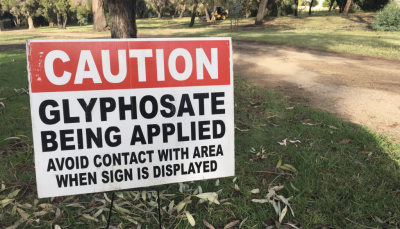Court Finds Multiple Flaws in EPA’s Glyphosate Cancer Risk Assessment

All Global Research articles can be read in 51 languages by activating the “Translate Website” drop down menu on the top banner of our home page (Desktop version).
To receive Global Research’s Daily Newsletter (selected articles), click here.
Visit and follow us on Instagram, Twitter and Facebook. Feel free to repost and share widely Global Research articles.
***
The Environmental Protection Agency (EPA) failed to follow established guidelines for determining cancer risk, ignored important studies, and discounted expert advice from a scientific advisory panel in officially declaring that the weed killer glyphosate was “not likely to be carcinogenic,” a federal appeals court ruled Friday.
A three-judge panel of the 9th U.S. Circuit Court of Appeals issued an opinion saying the agency’s 2020 assessment of glyphosate, the active ingredient in the herbicide Roundup, was flawed in many ways. The EPA applied “inconsistent reasoning” in finding that the chemical does not pose “any reasonable risk to man or the environment,” the panel determined.
The court vacated the human health portion of the EPA’s glyphosate assessment and said the agency needed to apply “further consideration” to evidence. The 9th Circuit also said the agency violated the Endangered Species Act in its assessment.
The decision comes at a critical time for Monsanto owner Bayer AG. Bayer is seeking to put an end to thousands of lawsuits filed by U.S. Roundup users who developed non-Hodgkin lymphoma and allege their exposure to the weed killer is to blame for their cancers. Monsanto introduced glyphosate weed killers in 1974 and pushed the chemical to such widespread use that it is considered the world’s most widely used herbicide.
Bayer denies there is any cancer connection to glyphosate and Roundup, and has repeatedly cited the EPA’s assurances of glyphosate safety as a key part of its litigation defense. The company has also said that the backing of the EPA and similar support from other regulators in other countries is more valid than a 2015 assessment by the World Health Organization’s International Agency for Research on Cancer (IARC), which found that glyphosate was “probably” carcinogenic to humans.
The IARC finding was based on a review of years of independent, peer-reviewed, published scientific studies. The reviews by the EPA and other regulators focused more heavily on unpublished and non peer-reviewed studies submitted to regulators by Monsanto and other companies involved in making and selling the chemical.
Human health advocates have long been frustrated by what they see as EPA’s flagrant disregard for substantial evidence of a cancer risk, seen in human and animal studies. Internal Monsanto documents, obtained through Roundup litigation discovery and Freedom of Information Act requests, have demonstrated the company deployed multiple strategies to manipulate scientific literature and regulators, including the EPA.
Moreover, the internal corporate documents show Monsanto has long been aware of research showing a connection between the weed killer and cancer, but has sought to bury such research and/or attack and censor scientists who insist there is evidence of a cancer risk.
The ruling Friday came in response to legal challenges brought by two groups of petitioners, one led by the Center for Food Safety, representing the Rural Coalition, and the other led by the Natural Resources Defense Council.
Though the EPA was the respondent in the case, Monsanto and a slew of large agricultural groups intervened in the case to support the agency.
*
Note to readers: Please click the share buttons above or below. Follow us on Instagram, Twitter and Facebook. Feel free to repost and share widely Global Research articles.
Featured image is from TNL

